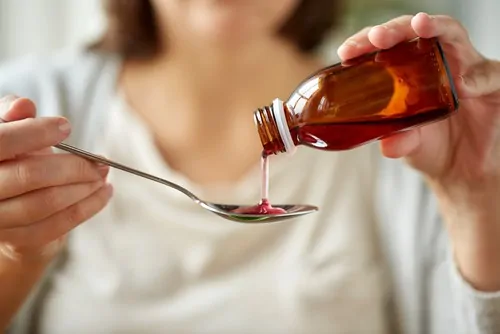
During this time of the year, it seems as if everyone we encounter is sneezing, sniffling, or coughing. While we do as much as we can to avoid getting a cold, sometimes we just get sick. When we do get a case of the coughs we just want it to go away, so we will try almost anything to make it stop. Most commonly, we’ll suck on cough drops and take cough syrup throughout the day. Even though these medications can alleviate our symptoms, your dentist in Chapel Hill wants you to know that the common ingredients in cough medicine do pose risks to oral health.
Many cough syrups and cough drops contain ingredients that can cause damage to teeth. More specifically, those medications containing sucrose, high fructose corn syrup, citric acid, and alcohol are the most concerning to your Chapel Hill dentist. The truth is, these ingredients can make us feel better during the course of a cold but can have long-term negative side effects on oral health.
Sugars
We’ve all heard Mary Poppins sing about how a spoonful of sugar will help the medicine go down, and she was right. Most cough syrups and cough drops contain sugar to help mask their naturally bad and bitter taste. But just like sugary snacks and foods, these sugars can be dangerous to teeth. When we introduce sugars into our mouths we can essentially create a feeding frenzy for bacteria. These bacteria will feed on sugar and then release an acidic byproduct. This acid will wear away tooth enamel and increases the risk of decay and cavities.
Alcohol
Besides sugar, some cold medicines contain small amounts of alcohol. Alcohol is known to cause dry mouth, even in smaller quantities. Normally, our mouths produce a lot of saliva — between 0.5 and 1.5 liters every day. This saliva helps neutralize dangerous acids and reduce the number of bacteria in the mouth. However, when alcohol causes dry mouth, saliva production slows and acids and bacteria stick around. This can increase the likelihood of decay.
Even though cold medicine can increase the risk of tooth decay and cavities, you shouldn’t suffer through a cold by not taking it. However, your dentist in Chapel Hill my recommend:
While we truly hope our patients and neighbors stay healthy all year round if you do happen to get sick, try taking medicine using the tips above to protect your smile.